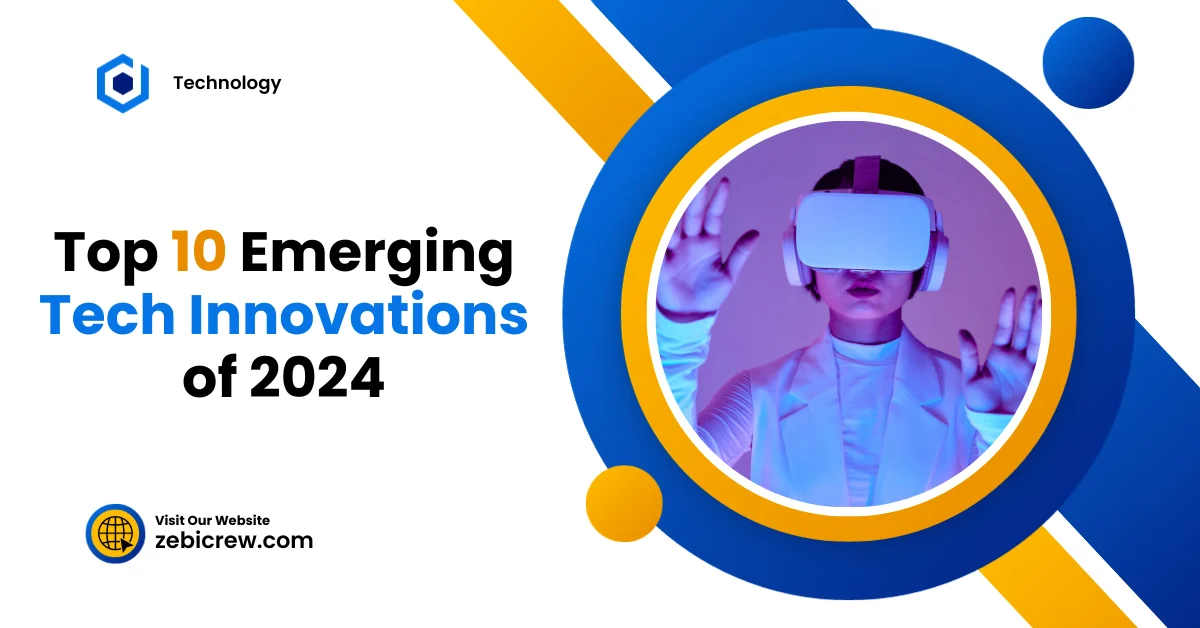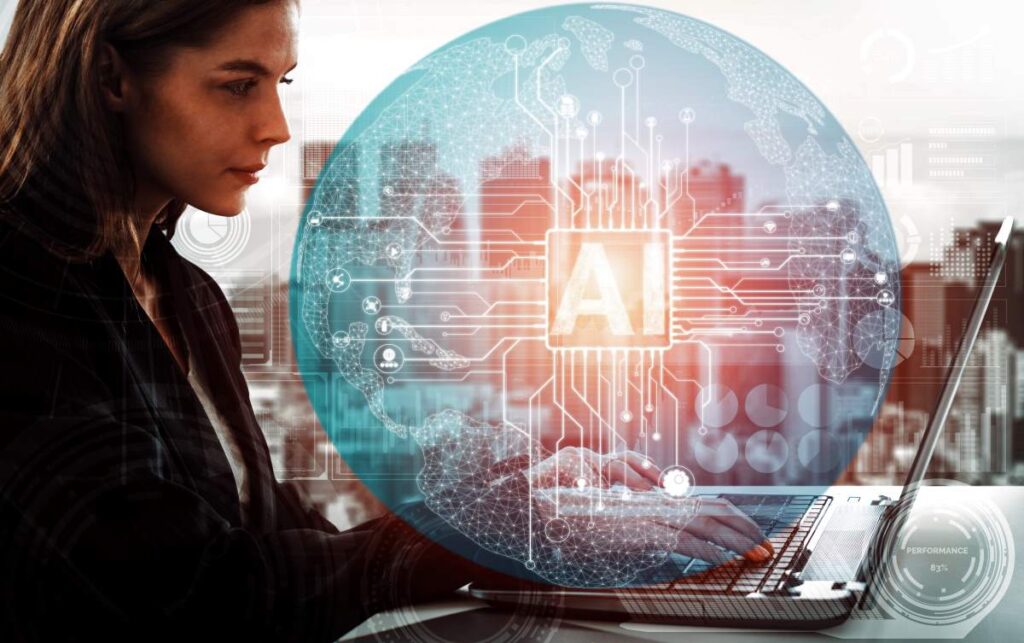Top 10 Software Innovations of 2024: Transforming Everyday Tech is an exciting list of the most groundbreaking technological advancements in the software industry. These innovations are revolutionizing the way we interact with everyday technology, from mobile apps to computer software. With the rapid pace of innovation in the tech world, these top 10 software innovations are reshaping the future of digital experiences and setting new standards for usability, functionality, and efficiency.
In the realm of software innovation, the year 2024 has brought forth a plethora of game-changing advancements that are redefining the way we engage with technology on a daily basis. These cutting-edge developments are not only enhancing user experiences but also pushing the boundaries of what is possible in terms of functionality and accessibility. From AI-powered virtual assistants to immersive augmented reality applications, the top 10 software innovations of 2024 are truly transforming the landscape of everyday tech in unprecedented ways, offering new possibilities and opportunities for users across the globe.
1. Artificial Intelligence in Personal Assistants
Personal assistants have become an essential part of everyday life, and in 2024, the integration of artificial intelligence has taken them to the next level. AI-powered personal assistants, such as Siri, Alexa, and Google Assistant, now have the ability to understand and respond to natural language more accurately, anticipate user needs, and perform complex tasks with ease. These advancements have transformed personal assistants from simple tools for setting reminders and playing music to intelligent companions that can proactively assist with daily tasks, provide personalized recommendations, and even engage in natural, human-like conversations.
Furthermore, AI has enabled personal assistants to integrate seamlessly with other smart devices in the home, allowing users to control their environment with voice commands and automate various functions. With AI continuously improving and evolving, the capabilities of personal assistants are expected to expand even further, making them indispensable in the lives of consumers.
2. Blockchain in Supply Chain Management
The use of blockchain technology in supply chain management has revolutionized the way products are tracked, verified, and authenticated. By leveraging blockchain, companies can create an immutable record of every transaction and movement of goods, from the source of raw materials to the hands of the end consumer. This level of transparency and traceability not only reduces the risk of counterfeiting and fraud but also streamlines the entire supply chain process, leading to greater efficiency and cost savings.
Additionally, blockchain enables smart contracts and automated compliance, ensuring that all parties involved in the supply chain adhere to predetermined terms and conditions. As a result, the integration of blockchain in supply chain management has led to improved trust and collaboration among stakeholders, as well as a higher level of accountability throughout the entire lifecycle of a product.
3. Augmented Reality in Remote Collaboration
With the advancement of augmented reality (AR) technology, remote collaboration has been transformed into a more immersive and interactive experience. In 2024, AR has enabled individuals from different locations to work together in virtual environments, where they can visualize and manipulate 3D models, share real-time annotations, and engage in lifelike interactions as if they were physically present in the same space.
This innovation has had a profound impact on various industries, particularly in design, engineering, and education, where the ability to collaborate in a virtual 3D space has led to increased productivity, faster decision-making, and enhanced learning experiences. As AR continues to evolve, the potential for remote collaboration across different fields is bound to expand, paving the way for new opportunities and advancements in how teams work together from a distance.
4. Internet of Things (IoT) in Healthcare
The integration of the Internet of Things (IoT) in healthcare has introduced a new era of connected medical devices, remote patient monitoring, and personalized healthcare solutions. In 2024, IoT has enabled healthcare providers to remotely collect and analyze real-time data from patients, allowing for early detection of health issues, proactive interventions, and more personalized treatment plans.
Moreover, IoT has facilitated the development of smart wearable devices, such as fitness trackers and health monitors, which empower individuals to take charge of their own health and wellness. These devices can continuously track vital signs, activity levels, and other health metrics, providing users with valuable insights and enabling them to make informed decisions about their lifestyle and healthcare needs.
5. Quantum Computing in Data Security
Quantum computing has emerged as a game-changer in the field of data security, offering unprecedented levels of encryption and protection against cyber threats. In 2024, the capabilities of quantum computing have been harnessed to develop advanced encryption algorithms and security protocols that are virtually impenetrable by traditional methods of hacking and decryption.
By leveraging the principles of quantum mechanics, quantum computing has the potential to safeguard sensitive data and communications in a way that was previously thought to be unattainable. As cyber threats continue to evolve, the integration of quantum computing in data security is poised to establish a new standard of protection for individuals, organizations, and governments alike.
6. 5G Technology in Smart Cities
The rollout of 5G technology has paved the way for the development of smart cities, where interconnected devices and systems are able to communicate and exchange data at unprecedented speeds. In 2024, the implementation of 5G has facilitated the creation of efficient and sustainable urban environments, characterized by improved connectivity, enhanced public services, and optimized resource management.
Smart city initiatives leveraging 5G technology encompass various aspects, including traffic management, energy efficiency, public safety, and environmental monitoring. The high-speed, low-latency capabilities of 5G enable real-time data processing and communication, allowing for the seamless integration of smart infrastructure and the delivery of innovative services that enhance the quality of urban life.
7. Edge Computing in Industrial Automation
Edge computing has significantly impacted industrial automation by enabling real-time data processing and analysis at the edge of the network, closer to the data source. In 2024, the adoption of edge computing has revolutionized manufacturing and production processes, allowing for immediate decision-making, predictive maintenance, and enhanced operational efficiency.
By processing data locally at the edge, industrial automation systems can minimize latency, reduce bandwidth usage, and ensure continuous operation even in the absence of a stable network connection. This level of resilience and responsiveness has elevated the capabilities of industrial automation, making it more adaptable to dynamic production environments and capable of meeting the demands of Industry 4.0.
8. Cloud Gaming Platforms
Cloud gaming platforms have redefined the gaming experience by allowing users to stream and play high-quality, cutting-edge games on various devices, without the need for expensive hardware or downloads. In 2024, the advancements in cloud gaming technology have made it possible to enjoy console-quality gaming through the cloud, with minimal latency and maximum convenience.
By leveraging the power of cloud infrastructure, gaming platforms have democratized access to premium games and multiplayer experiences, making them accessible to a wider audience. Additionally, cloud gaming has facilitated cross-platform play and seamless game progression across different devices, providing a seamless and unified gaming experience for enthusiasts around the world.
| Rank | Innovation | Description |
|---|---|---|
| 1 | Artificial Intelligence (AI) Assistants | AI assistants have become more advanced, helping with everyday tasks and making personalized recommendations. |
| 2 | Blockchain Technology | Blockchain is being used for secure transactions, digital identities, and supply chain management. |
| 3 | Augmented Reality (AR) in Navigation | AR is integrated into navigation apps, providing real-time directions and information. |
| 4 | Healthcare Software | Advanced healthcare software is improving patient care, diagnostics, and treatment plans. |
| 5 | Smart Home Automation | Software for smart homes is becoming more intuitive and integrated, controlling various devices with ease. |
| 6 | 5G Network Optimization | Software innovations are optimizing 5G networks for faster and more reliable connectivity. |
| 7 | Personalized Shopping Experiences | E-commerce platforms are using advanced software to provide personalized recommendations and virtual try-on experiences. |
| 8 | Environmental Monitoring Software | Software is being used to monitor and analyze environmental data for sustainable practices. |
| 9 | Collaboration Tools | Advanced collaboration software is improving remote work and team communication. |
| 10 | Personal Finance Management | Software for personal finance is becoming more comprehensive and user-friendly, helping with budgeting and investments. |
Top 10 Software Innovations of 2024: Transforming Everyday Tech showcases the advancements in software that are revolutionizing various aspects of daily life. From AI assistants to blockchain technology and smart home automation, these innovations are shaping the way we interact with technology and improving efficiency, convenience, and personalized experiences.



